
|
?Jin merchants |
|
Jin merchants, also known as Shanxi province merchants, were the most powerful and prominent merchant guilds during the Ming and Qing dynasties.?? The First World Assembly of Jin Merchants held in the city of Taiyuan, Shanxi province on August 19, attracted many representatives of overseas chambers of commerce and business associations, Jin financiers, entrepreneurs from abroad, and heads of the world's Top 500 companies. This was the first conference of its kind devoted entirely to the Jin merchants sprit, which refers to the merchants of Shanxi province, and who are known as China's earliest traders, dating back as far as the Warring States period (BC 475-221). In the early of the reign of Emperor Hongwu (1368-1398) in the Ming Dynasty, Shanxi natives began to supply grain to the northern military frontiers with the aim of getting a government permit for the more profitable trade of salt, a necessity and abundant resources in the province. Salt trading was how the Shanxi merchants initially accumulated their huge wealth and came to fame. By the time of the Qing Dynasty, the guild had established close ties with the government through continuous tributes, thus becoming an even more powerful capital force.
|
|
News |
|
Shanxi to host merchant conference Jin merchants will usher in their first world conference in the Taiyuan Coal Trading Center from August 19 to 20. The conference will be a platform to display the spirit and cohesive affinity of new Jin merchants as well as provide a window for the outside world to learn more about Shanxi. It will also be an important event to help expand investment and enhance the industrial transformation of Shanxi.
The First World Assembly of Jin Merchants held The First World Assembly of Jin Merchants held in the city of Taiyuan, Shanxi province on August 19, attracted many representatives of overseas chambers of commerce and business associations, Jin financiers, entrepreneurs from abroad, and heads of the world's Top 500 companies.
|
|
?People of Significance | |||
|
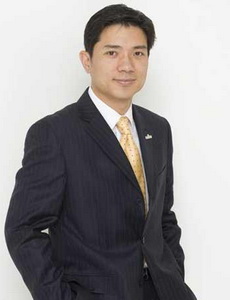 |
Robin Li was born on Nov 17, 1968 in the city of Yangquan in Shanxi province. He is the co-founder, chairman and CEO of China's most popular search engine, Baidu. He is in charge of strategic plans for the company and is responsible for its operation management. |
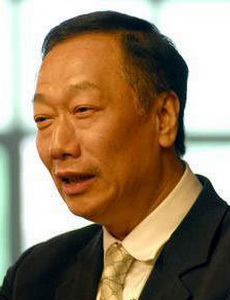 |
Terry Guo, Founder of Foxconn
Terry Tai-Ming Guo, sometimes written as Terry Guo, was born on Oct 8, 1950 in Banqiao township, Taipei county. His parents lived in Shanxi province in the Chinese mainland before they fled to Taiwan in 1949. |
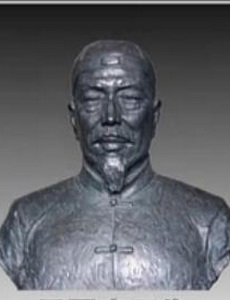 |
Lei Lvtai- Founder of the first bank Lei was born in a merchant family in Pingyao, when he was young, his family fell on hard times, he worked in various shops as a apprentice, Then he joined Xi Yu Cheng,a money shop, and was appriciated by Li (shop owner) who appointed him as the shopkeeper of the Beijing branch. |
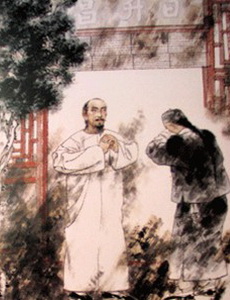 |
Hou Yinchang - founder of Wei Tai Hou As the private banks mushroomed 40 years after Rishengchang's appearence in Shanxi, among them were five ally banks, generally named Wei associates, established by Hou Yinchang, a merchant from Shanxi. They were almost as influencial as Rishengchang. |
|
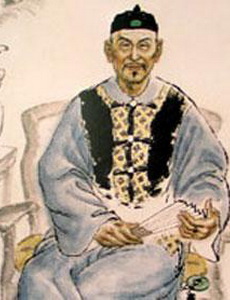 |
Qiao Zhiyong-Founder of Dadetong Bank Master of Qiao's compound in Qi county, Shanxi province. He has taken his family business as a young man, due to his extrodinary talent, his family business has flourished day by day ever since.Qiao family soon became the largest and richest in Shanxi.
|
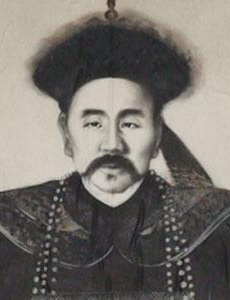 |
Hu Xueyan-Founder of Fukang bank
Hu Xueyan was the owner of privat bank- Fukang Bank in sourthern China. He was a businessman with great talent and bold vision. He was very gifted, though he did not receive much education, he had great powers of understanding. Hu's family was in strict circumstances during his childhood, so he was sent to a local bank as an apprentice. |
|
?Private banks in Pingyao |
|
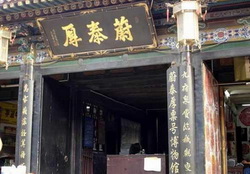 |
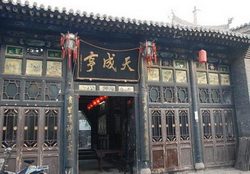 |
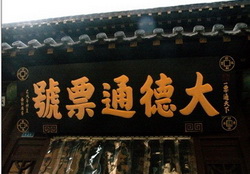 |
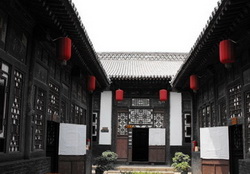 |
| Da DE Tong | Bai Chuan Tong |
|
5-Episode Documentary: History of modern Chinese banking | ||||
| Part 2 - Early days | Part 3 - Rapid growth? | Part 4 - Trying times | Part 5- The Transformation | |